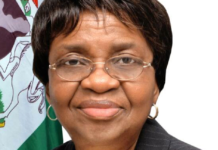Managing Director of Optimal Healthcare Limited, Dr Femi Olaleye, has declared that it has become a difficult task for individuals to build and run hospitals successfully in Nigeria.
Addressing participants at a three-day workshop on “Effective Leadership In Health Care Delivery” held at Pharmanews Training Centre, Maryland, Lagos on 20 May, 2014, the medical doctor explained that operating hospitals in Nigeria today comes with several challenges.
“You have to consider the rent, staff salary (which includes payment for security guards to secure your property), change of equipment from time to time, and of course, fuel to power your generator, in the absence of steady electricity supply,” he stressed.
Speaking further, Olaleye revealed that in most developed countries like the United Kingdom, medical equipment is not owned by the government or hospital managements.
“The medical equipment you see around in those hospitals, including beds, is leased. Unlike most Nigerian hospitals that wait for government to buy new equipment to replace old or outdated ones, the ones abroad are replaced immediately more sophisticated ones hit the market, with no extra cost as part of the lease arrangement,” he noted.
Olaleye further emphasised the indispensability of Public-Private Partnership (PPP) in running effective and profitable hospitals.
“We cannot afford to leave everything for government because those at the helm of affairs cannot do it alone,” he canvassed.
The medical doctor however cautioned that entering into partnership with any organisation or individual demands specification of roles for each partner, as well as documentation of agreements.
“Even if you cannot afford a lawyer, ensure whatever you discuss and agree upon is put in ‘black and white’ to make it legal,” he counselled.
In attendance at the workshop were doctors, pharmacists, nurses, medical lab scientists and other clinical, administrative and technical personnel in the health care system.










